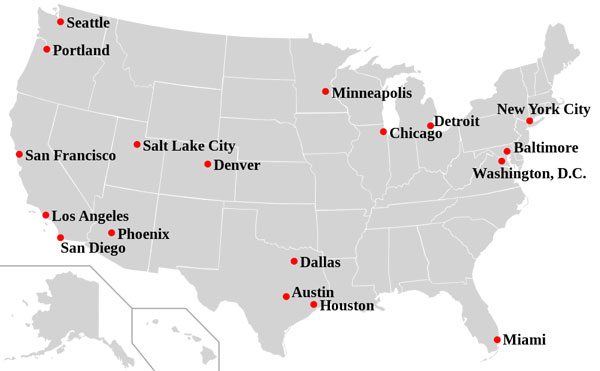
April 19, 2018; Washington Post and Politico
In another setback to President Trump and Attorney General Sessions, a federal appeals court in Chicago unanimously upheld a nationwide injunction that stops the administration from making federal grant funding dependent on a city’s cooperation with immigration enforcement. Adding irony to this, all three justices were appointed by Republican Presidents and none were kind in their remarks about the efforts to use federal funds as the carrot to entice cooperation.
Judge Ilana Rovner, an appointee of George H.W. Bush, wrote a strong opinion that said allowing federal agencies to add conditions to grant funds without explicit congressional authority could lead toward “tyranny.”
“The Attorney General in this case used the sword of federal funding to conscript state and local authorities to aid in federal civil immigration enforcement. But the power of the purse rests with Congress, which authorized the federal funds at issue and did not impose any immigration enforcement conditions on the receipt of such funds,” Rovner wrote, in an opinion joined by Judge William Bauer. “It falls to us, the judiciary, as the remaining branch of the government, to act as a check on such usurpation of power.”
The suit was brought by the city of Chicago against the Justice Department when new grant conditions were imposed that required cooperation on immigration enforcement as a condition of already granted federal funds. In determining the case, the judges went so far as the dispute how Sessions characterized the issue. They stated he “repeatedly characterizes the issue as whether localities can be allowed to thwart federal law enforcement. That is a red herring. First, nothing in this case involves any affirmative interference with federal law enforcement at all, nor is there any interference whatsoever with federal immigration authorities.”
Sign up for our free newsletters
Subscribe to NPQ's newsletters to have our top stories delivered directly to your inbox.
By signing up, you agree to our privacy policy and terms of use, and to receive messages from NPQ and our partners.
The ruling also addressed the ways that sanctuary cities are understood.
The term sanctuary cities, the judges wrote, “is commonly misunderstood.” Chicago “does not interfere in any way with the federal government’s lawful pursuit of its civil immigration activities, and presence in such localities will not immunize anyone to the reach of the federal government.…The federal government can and does freely operate in ‘sanctuary’ localities.”
While it was not looking good for the Trump administration on this issue, and with another similar suit pending in California, there was one small light at the end of this dark tunnel. One of the three judges, Daniel A. Manion, a Reagan appointee, sided with the administration in opposing a lower court’s ruling that made this a nationwide injunction, rather than just applying it to Chicago. Manion wrote that “An injunction, particularly a preliminary injunction, is an extreme remedy. A nationwide preliminary injunction is more still. One should only be issued where it is absolutely extreme necessary, and it is far from absolutely necessary here.”
Nonprofits working with cities who have been on edge about federal grant funds that could be in jeopardy because of noncompliance with immigration enforcement can breathe easy—for now. But don’t hold your breath; the administration is indicating that their next step may be an appeal to the Supreme Court. And while immigration advocates celebrated a victory there this past week, counting on that decision as a measure of where SCOTUS stands on immigration might be wishful thinking.—Carole Levine













